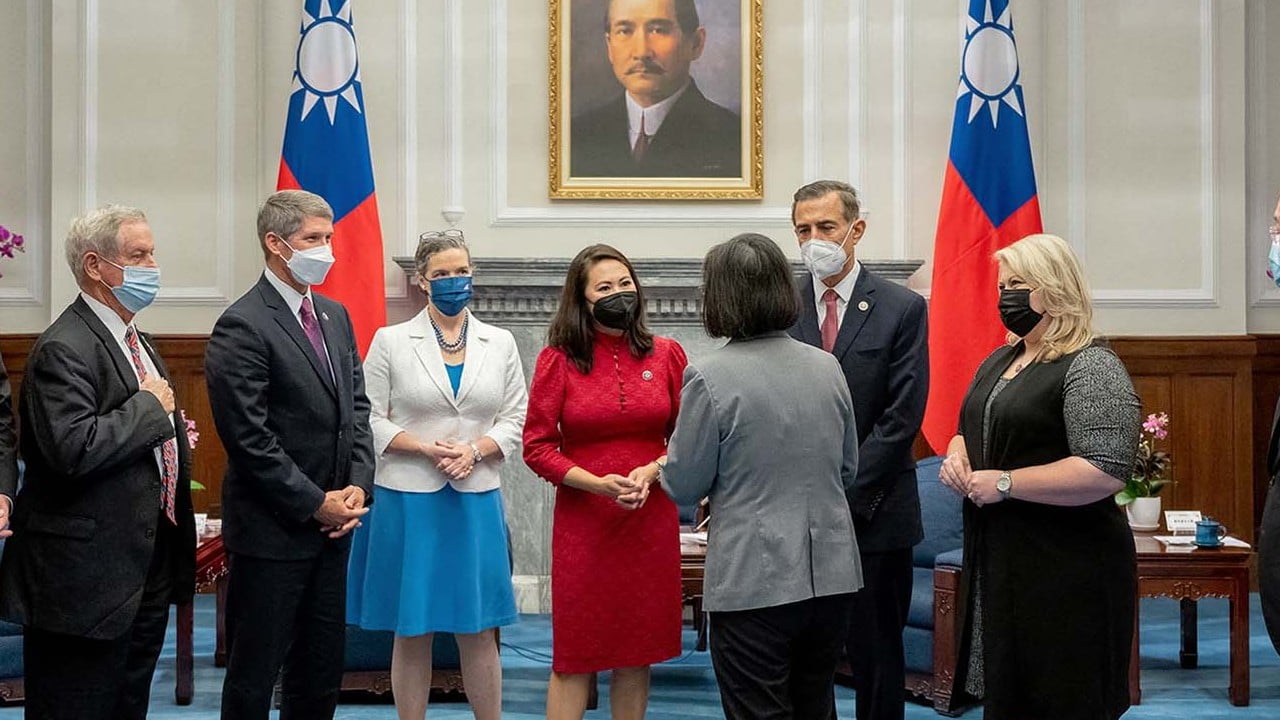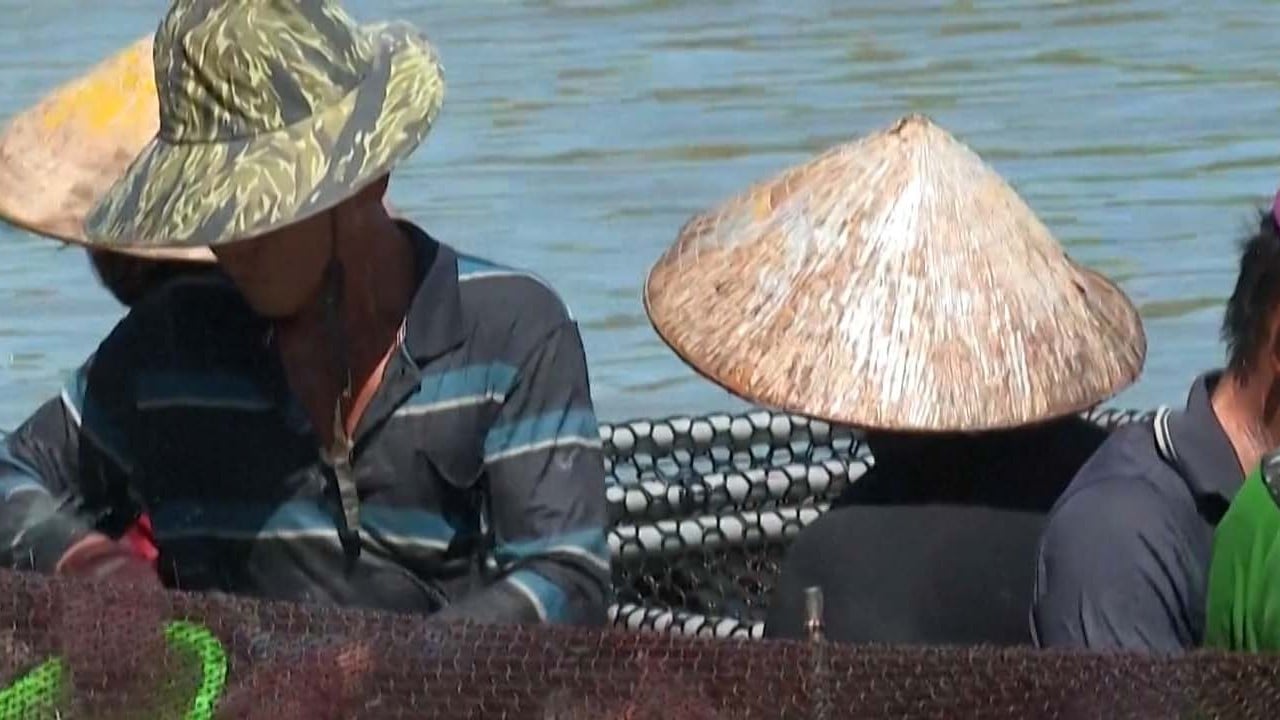
Mainland China’s ‘overreaction’ on Taiwan a danger to peace, US ambassador says
- US ambassador Nicholas Burns says Beijing is endangering a peaceful resolution to tensions in the Taiwan Strait
- The US is not seeking to decouple, but will ‘vigorously’ compete with China, Burns says
The United States has not shifted its stance on Taiwan and remains committed to the one China policy, but Beijing’s “overreaction” to the visit of US House Speaker Nancy Pelosi risks a peaceful resolution, Washington’s ambassador to China said on Thursday.
Nicholas Burns, who was appointed ambassador in March, said countries in Southeast Asia should also be concerned about mainland China’s aggression in the Taiwan Strait, given its importance as a shipping route.
“If anyone has changed policy here, it’s really the People’s Republic of China, with their overreaction, for nearly two months now since speaker Pelosi’s visit,” he said at the Milken Institute Asia Summit in Singapore.
“We’ve had a median line in the Taiwan Strait for 68 years, it has really kept the peace. [China] tries to erase that: they fired missiles over Taiwan into the Japanese economic zone, they simulated a naval blockade and air blockade.”
Burns said rising tension over Taiwan was highly relevant for all countries in the Association of Southeast Asian Nations (Asean).
“I think the most important question that all of us … should be asking is, is the People’s Republic of China going to maintain a peaceful resolution to this dispute? Will they keep that standard? Or will they resort to coercion, intimidation, or military force?” he said.
“That’s a question that every member of Asean, every major and smaller country in this region has to be concerned about. We actually want to hold the Chinese to that standard that you need to act peacefully here.”
The ambassador said the US message to China over the past two months has been clear: Washington is going to reinforce the status quo.
“I actually don’t think the Chinese have any misunderstanding of US policy,” he said. “They don’t agree with our policy, but we’ve been clear about the one China policy.”
Most countries, including the US, do not recognise Taiwan as an independent state, but Washington opposes any attempt to take the island by force.
On Wednesday, US Vice-President Kamala Harris said the US will strengthen “unofficial ties” with Taiwan and support its self-defence during a visit to Japan for the funeral of former prime minister Shinzo Abe.
Despite deteriorating Sino-US relations, Burns said on Thursday the US was not seeking to decouple with China and a new cold war was not on the cards. But he added the US was going to compete with China “vigorously”.
Burns said the US would compete with China on technology and confront it on its World Trade Organization commitments, including its unwillingness to create a level playing field for foreign firms.
But there was room to engage on climate change and global health issues, and the two had major economic connections.
He added the current US-China relationship was more complex than the Cold War and consequential for global peace and security.
In his speech, Burns also touched on widespread concerns in the US about alleged violations of human rights and religious freedom in China.
“We’ve actually enacted sanctions against Chinese officials involved in repression with Xinjiang, sanctions concerning what happens since 2019 and the imposition of the national security law in Hong Kong,” he said.
The Uygur Forced Labour Prevention Act, which effectively bans US imports of products from Xinjiang over alleged forced labour, is an example of how seriously the US is taking human rights issues in China, Burns said.
Washington was watching China’s relationship with Russia closely, Burns said, though he added the US had not seen any evidence of Beijing providing military support to Moscow or helping Russia circumvent Western sanctions.
But he said American officials were concerned Beijing was conveying different messages on Russia to its own people by blaming the US and Nato for instigating the Ukraine war, while telling the rest of the world it wants a peaceful resolution.
“We would hope the Chinese would be consistent on that,” he said.



